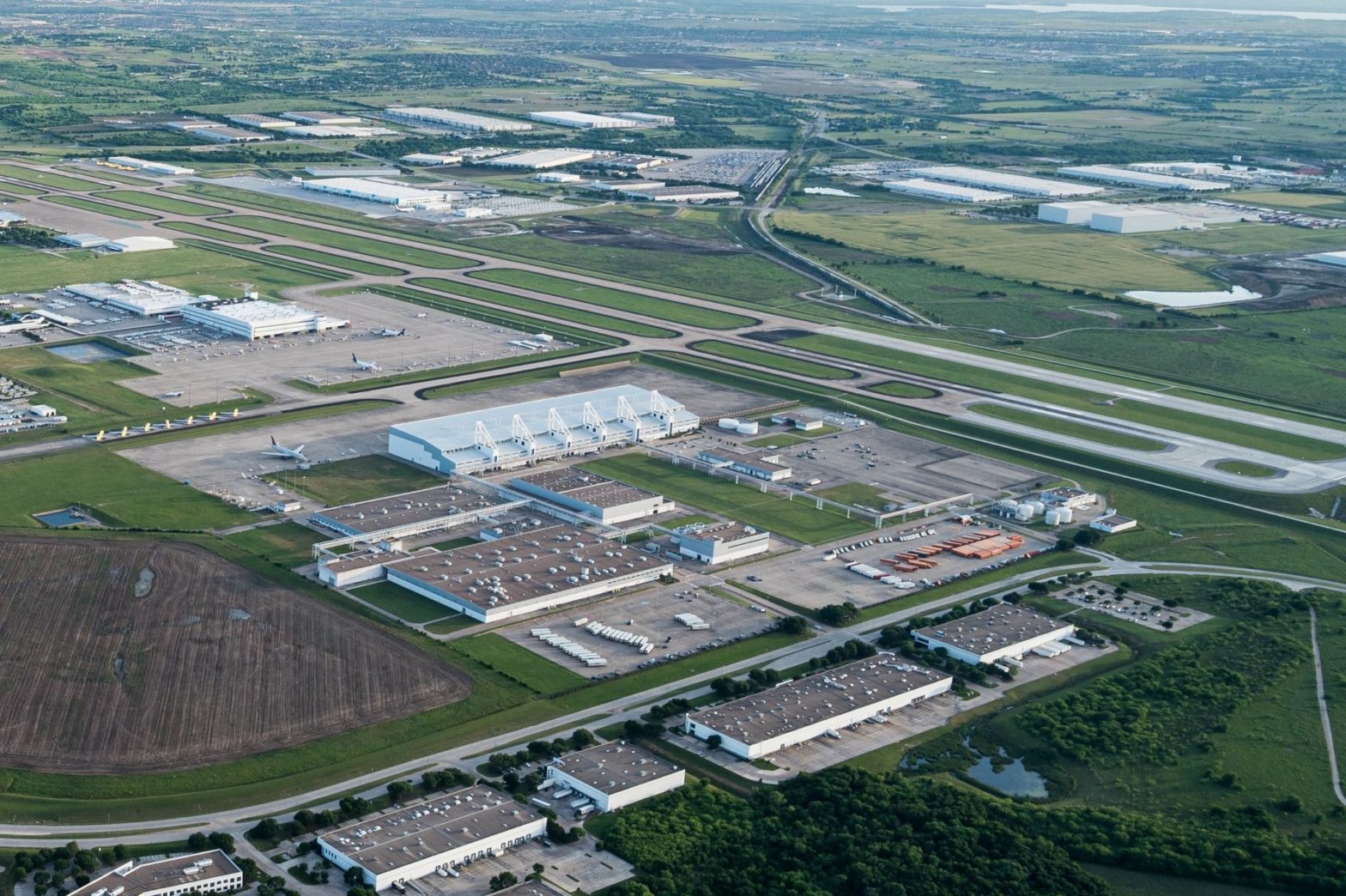Perot Field Fort Worth Alliance Airport (AFW) continues to snag a larger piece of the nation’s air cargo and has been named one of the Top 20 U.S. Cargo Airports ranked by the Federal Aviation Administration.
Alliance moved up three spots to No. 20 in the rankings and landed more than 2.4 billion pounds of cargo in 2021, a volume increase of nearly 46% from the previous year, the airport said in a statement.
“A key player in the national and global supply chain, this recognition reinforces the incredible growth and demand we have experienced at the airport over the past five years,” Christian Childs, president of Alliance Aviation companies at Hillwood, said in a statement. “The airport plays a critical role in our national security efforts and in ensuring Americans have access to essential household goods.”
Airport was created in 1989
Created in 1989 as a collaboration between Hillwood, the city of Fort Worth, and the FAA, Perot Field Fort Worth Alliance has served as a premier destination for aviation and global logistic customers at AllianceTexas, the massive Hillwood development that has contributed to more than $100 billion in cumulative economic impact to the region since its inception.
In June, the Fort Worth City Council passed a resolution honoring the late North Texas business icon and philanthropist Ross Perot Sr. by renaming Alliance Airport as Perot Field Fort Worth Alliance Airport. Perot died in 2019 at the age of 89.
World’s first industrial airport designed for cargo and corporate air traffic
Perot Field Fort Worth Alliance Airport is the world’s first industrial airport designed for cargo and corporate aviation traffic.
The airport features an array of flight services including air cargo, corporate and government aviation, and is the cornerstone of one of the nation’s most successful private-public partnerships, the 27,000-acre AllianceTexas development.
A key component of The MIZ
It’s also a key component of the AllianceTexas Mobility Innovation Zone, which is boosting innovative mobility solutions throughout the supply chain and has attracted leading companies focused on the autonomous and automated movement of goods.
According to the airport’s operations data for 2021, AFW experienced a 43% year-over-year volume increase in cargo transported.
The airport reported 789,429,648 pounds of cargo enplaning and deplaning at AFW in 2021, compared to 550,762,202 pounds in 2020.
The airport’s growth is attributable to a variety of factors, the airport said, including increased efficiencies and lower operating costs, a dramatic shift in consumer behavior, and an increase in e-commerce shipping activity.
FedEx’s AllianceTexas-based Southwest Regional Sort Hub is ranked third in the nation in terms of square footage of sortation and handling facilities, the airport said in a statement. AFW also is the home to one of Amazon Air’s regional air hubs enabling wider selection and faster delivery to customers across Texas and the region.
DFW Airport ranks No. 11 on the FAA list
Dallas Fort Worth International Airport ranks No. 11 on the list with 3.9 billion pounds of cargo enplaning and deplaning in 2021, according to the FAA.
To learn more about the FAA rankings, go here.
